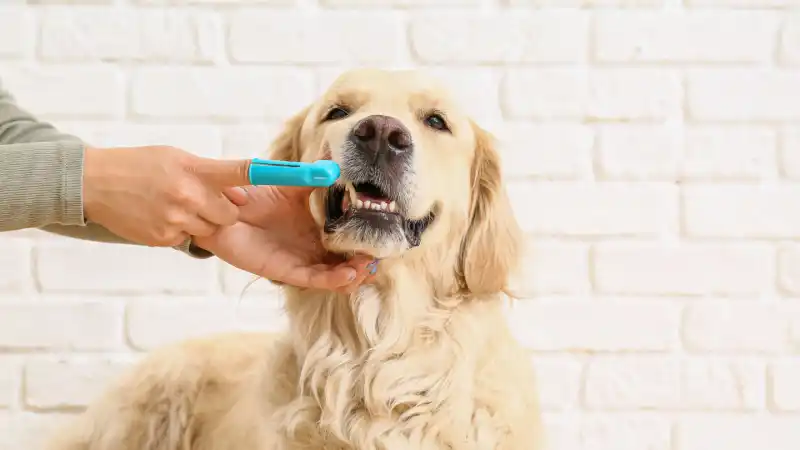Water Intoxication: What You Need to Know This Summer
We all love watching our dogs splash, swim, dive and fetch in the water during the hot summer months but there are some things to keep in mind this summer.

We all love watching our dogs splash, swim, dive and fetch in the water during the hot summer months. Not only does it give them endless enjoyment but it can also keep them cool on the hottest of days. However, there are some things to keep in mind this summer during your dog’s water play sessions at the lake or pool.
Many dog owners have never heard of water intoxication. Water intoxication (or hyponatremia) is when the sodium levels in blood get dangerously low due to excessive absorption of water. Hyponatremia is uncommon but it’s prudent for dog owners to understand the causes, symptoms and prevention of this potentially fatal condition.
Causes
There is no one cause of water intoxication. It can arise from any activity or behavior that has the potential to dramatically increase the amount of water absorbed into cells, which in turn, leads to a hyponatremia. Some examples of these activities are:
Lapping up water while swimming
Diving underwater for balls, toys, sticks or rocks (diving for rocks can be potentially dangerous for other reasons as well)
Swimming with mouth open (i.e. with toy or stick in their mouth)
Drinking large amounts of water at one time soon after a long swim session
With all that being said, we don’t want to deprive our pups from the enjoyment they get from swimming nor do we want to deny them the necessary hydration after a hard play (because we know how important adequate hydration is in the heat. However, dogs who frequently partake in a number of the above activities should be diligently monitored while in the water and closely observed after play.
Risk Factors and Prevention
Dogs who love to swim and spend extended periods of time in the water are at a higher risk of experiencing water intoxication— especially if a lot of diving and fetching is involved. Additionally, dogs who gulp large quantities of water after swimming are at an even greater risk. Any breed or size of dog can suffer from the condition—though small breed dogs may exhibit symptoms more quickly due to the fact that it takes less water to affect the sodium levels in the blood.
Preventing this from happening to your beloved companion simply means taking a few precautionary measures:
Observe your dog closely during pool or lake play sessions. Take note if your dog laps up water while swimming.
Limit the amount of time your dog stays in the water. Make him take frequent rest breaks in between play sessions to decrease time in the water.
Limit or prevent fetching or diving under water.
Monitor your dog while drinking after play. Don’t allow him to gulp up large amounts of water directly after swimming. Let him rest for a short period of time and then offer small, frequent amounts of water at a time with breaks in between.
What to Watch Out For
Symptoms of water intoxication include:
Staggering or loss of coordination
Lethargy
Nausea
Vomiting
Bloating
Dilated pupils
Glazed eyes
Light colored/pale gums
Excessive salivation
In severe cases, other symptoms could include:
Difficulty breathing
Collapse
Loss of consciousness
Seizures
Coma
Death
If you see your dog exhibiting any of the above symptoms after a long swim session, it is best to bring your dog to the veterinarian immediately. Your veterinarian will stabilize him and treat him for low blood sodium which might include IV fluids with electrolytes, diuretics and drugs to reduce brain swelling. With fast, aggressive treatment your dog can recover from water intoxication, but sadly many do not.
Take Away
The purpose of this post was not to scare you or deprive your dog of the enjoyment of playing in the water, but to educate responsible dog owners on what to look out for if your pup is an exuberant lover-of-the-water! This summer, enjoy your dog, enjoy the lake or pool, but be observant and quick-to-act in case of an emergency.
The information provided in this blog is intended for educational purposes only and should not serve as a substitute for the professional medical advice of your veterinarian. Always consult your veterinarian with questions about your pet’s health and before initiating any treatment regimes.

Erin Tursam comes to AKC Pet Insurance with a background in veterinary medicine. As the Marketing Manager at PetPartners, she uses her knowledge and experience to help pet owners better understand the health needs of their pets and how pet insurance can help keep them happy and healthy. Erin lives in Apex, NC and has a 13-year-old Cavalier King Charles Spaniel and 7-year-old Doberman.
READ MORE ARTICLES

